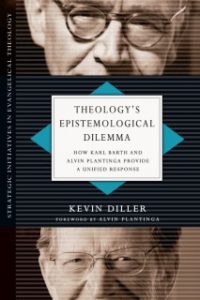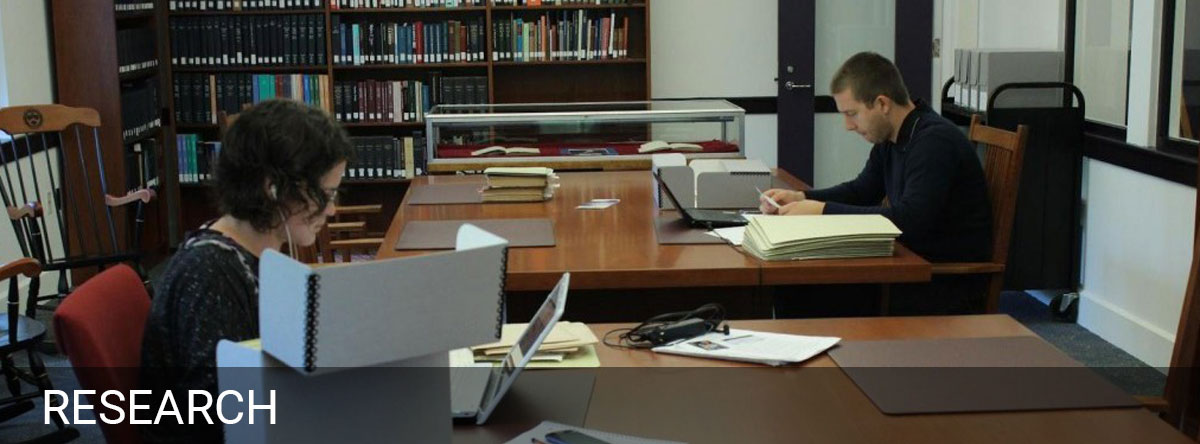 Diller, Kevin. Theology’s Epistemological Dilemma: How Karl Barth and Alvin Plantinga Provide a Unified Response. (Downer’s Grove: IVP Academic, 2014), 352 pp. $34.00
Diller, Kevin. Theology’s Epistemological Dilemma: How Karl Barth and Alvin Plantinga Provide a Unified Response. (Downer’s Grove: IVP Academic, 2014), 352 pp. $34.00
Reviewed by Darren Kennedy (March 03, 2016)
Tensions between theology and philosophy reach back even before Tertullian famously queried, “What does Athens have to do with Jerusalem?” Tertullian raised the crucial question of the relationship between and ordering of theology and philosophy. Can religious thinkers simply espouse their beliefs without constraint from philosophy or must they justify those claims by philosophy’s canons? To what extent? Many have tried to navigate these treacherous waters throughout the past two millennia. Nevertheless, many perceive that the divide between theology and philosophy hit a peak in the theology of Karl Barth. Kevin Diller’s significant book Theology’s Epistemological Dilemma: How Karl Barth and Alvin Plantinga Provide a Unified Response not only successfully challenges this view, he also persuasively argues that Alvin Plantinga’s philosophy brings philosophical clarity to Barth’s theology of revelation. The cumbersome and somewhat intimidating title gives little indication of the book’s clear, direct and often entertaining style. While readers of either Barth or Plantinga will likely respond to the title with perplexity and a furrowed brow, Diller methodically makes his seemingly implausible case to great effect. Ultimately, the most beneficial outcome of Diller’s book is a fresh approach to “theology’s epistemological dilemma” that offers new paths for both theologians and philosophers in their respective fields and in interdisciplinary conversations.
Based on his doctoral dissertation written under the direction of Professor Alan Torrance at the University of St. Andrews, Diller has expanded his text and jettisoned some of the cumbersome aspects of the dissertation form. Diller’s book argues convincingly that Karl Barth’s theology of revelation and Alvin Plantinga’s epistemology of Christian belief stand as complementary voices rather than combatants in the quest to address “theology’s epistemological dilemma.” Several recent scholars have argued against the widely held view that Barth’s thought is anti-philosophical at best and irrational at worst, but Diller’s elucidation of both Barth’s statements against philosophy as well as natural theology illuminate Barth’s core concerns with ordering and qualification rather than a wholesale dismissal of philosophy. Diller uses Barth’s debate with Adolf von Harnack to exemplify the way that Barth does “indeed curtail the free rein of philosophy over theology” but not ban it entirely.
Diller’s clear and accessible style draws the reader in through the opening chapters. He outlines his argument succinctly in the introduction and continues to carefully illustrate the significant commonalities between the two Reformed scholars. Page by page, one can almost feel the furrowed brow being replaced by eager anticipation of Diller’s next move. The book offers something new and surprising for even the most well-versed scholars in either writer. Delightfully, Plantinga registers his own surprise in the Foreward: “Barth rejects the fundamental claims of the Enlightenment; I agree. Barth rejects any attempt to come to knowledge of God “from below”; I agree. Barth argues that serious Christian believers should not be apologetic (they have nothing for which to apologize); again, I agree” (11). These three convergences alone give grounds for a constructive conversation if not “a unified response.”
Diller’s ambitious aim is aided in his careful restraint in delineating each thinker’s ideas. By listening sensitively to both Plantinga and Barth, he makes far more cautious claims about each and avoids common mistakes of other scholars. For example, Diller painstakingly arrives at the conclusion that Barth is a “theo-foundationalist.” He stresses that Barth’s rejection of certain Enlightenment assumptions allows him to answer other Enlightenment concerns. Barth’s theology of revelation rejects the “accessibility requirement” or the assumption that theological knowledge “must spring from trustworthy grounds that are readily accessible to the theologian” (81). Barth rejects the requirement claiming that humans have no innate capacity for this knowledge. Nevertheless, humans have knowledge due to God’s movement from above. Here, Diller helpfully explains, “Barth is a foundationalist—not a classical foundationalist, but a theo-foundationalist” (85). Do not be fooled by seemingly self-deprecating statements like, “Let me be clear that I am not attempting to contribute a new insight about Barth to the field of Barth studies” (43). While his description of Barth’s theology of revelation may not be ground-breaking, his interdisciplinary use of it with Plantinga is. Aided by Plantinga’s philosophical lens, Diller describes the philosophical strength of Barth’s theology of revelation.
While the groundbreaking contribution of the book is in the complementary engagement of Barth and Plantinga, Diller’s clarity makes each chapter useful on its own as well. For example, Diller’s two chapters on Barth’s theology of revelation set the foundation for the unified response, but also offer teachers of theology an excellent introduction to one of the more challenging and easily misunderstood aspects of Barth’s theology. The same can be said of his discussion of Plantinga’s epistemology of Christian belief. In both cases, Diller gives readers a remarkable tool chest of ideas for thinking critically about epistemology and the challenging questions that often shake Christians in their faith. While academically rigorous throughout, the book has a practical aspect that the title does not readily indicate.
Remarkably, Diller largely succeeds in arguing for “a unified Barth/Plantinga response” to the epistemological problem. In doing so, he reframes many old questions and opens up new possibilities for fresh conversations. Perhaps this success made his discussion of biblical inerrancy towards the end of his book more disconcerting. Using Barth and Plantinga to fix the reader’s attention solidly on God and “God’s saving, reconciling and redeeming action”, Diller returns the reader to the abstract questions of the nature or attributes of Scripture. While handling the discussion with his characteristic clarity and subtlety, Diller seems to undercut many of his own advances in the book. He candidly states, “It seems safe to say that Barth would not have affirmed even a qualified form of inerrancy” (276) and leaves Plantinga’s explicit views on inerrancy out of the discussion. Nevertheless, Diller rightfully concludes that the “Barth/Plantinga proposal does not require a specific construal of inerrancy, but it does discourage some views of scripture that are sometimes associated with simplistic formulations” (279). The danger of bringing the topic of inerrancy into the conversation here is that it seems to make the Bible’s inherent “inerrancy” the focus and source of confidence for the believer rather than the dynamic, ongoing action of God “from above.”
Diller’s outstanding book opens the door to a new, clearer, and more beneficial conversation between theology and philosophy. The book not only deserves to be read widely by students, scholars and pastors, it deserves to be read with the same care and critical fairness that he offers to both Barth and Plantinga. Theology’s Epistemological Dilemma shows remarkable depth of understanding and keen grasp of the corpus of each great thinker. Diller’s clear and direct style brings the reader through challenging material with relative ease repaying the reader handsomely for the investment given. Diller’s significant contribution to both theology and philosophy offers a new space and framework for interdisciplinary discussions. Perhaps the Barth/Plantinga unified response can bring us all to a deeper understanding of the relationship between Athens and Jerusalem.
The views expressed here are strictly those of the author; they do not necessarily represent the views of the Center for Barth Studies or Princeton Theological Seminary.


